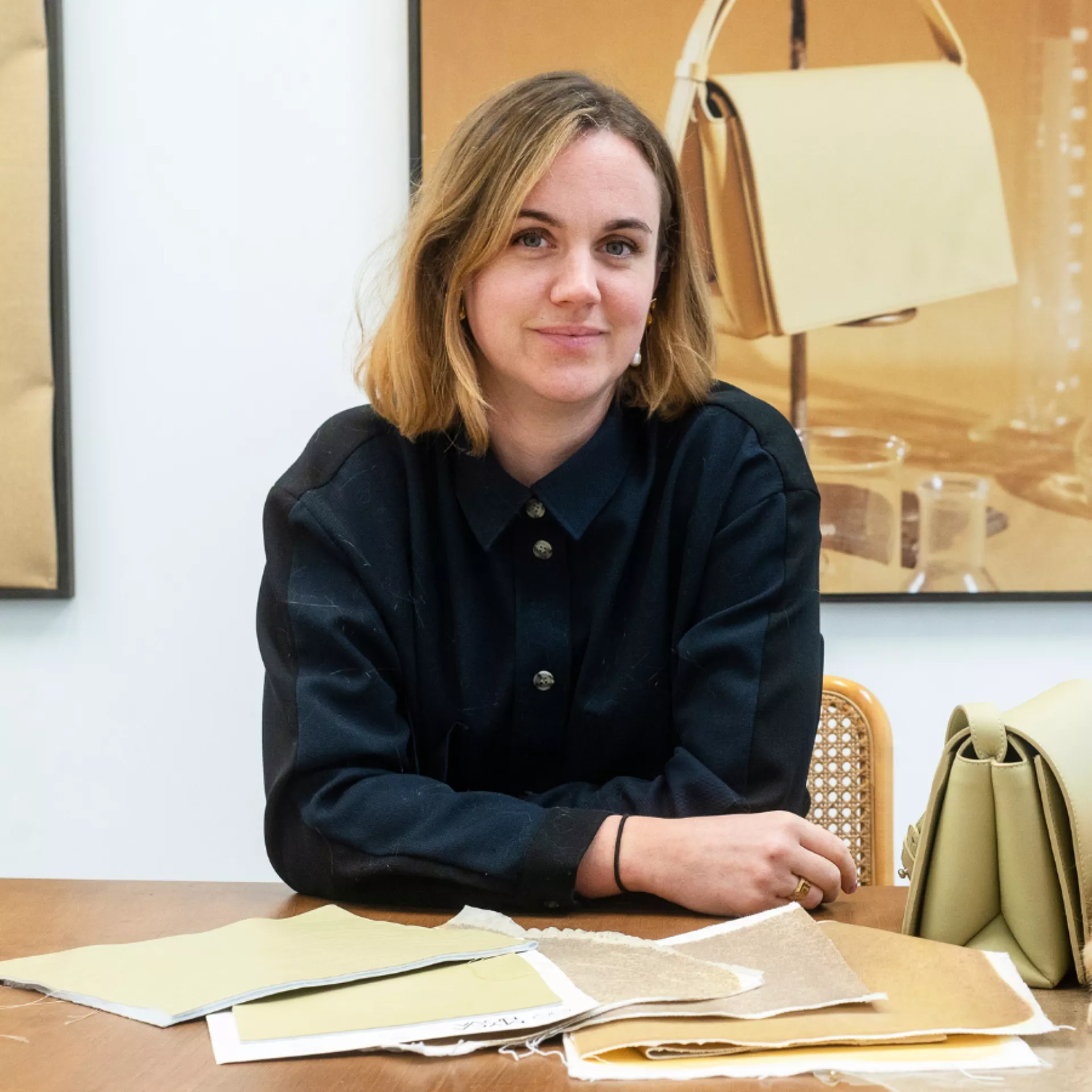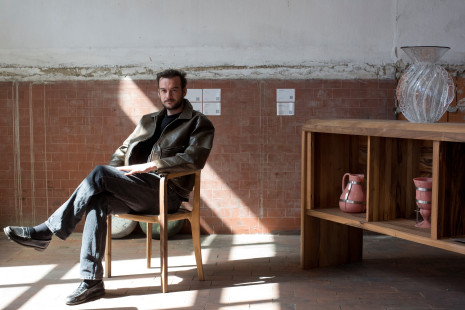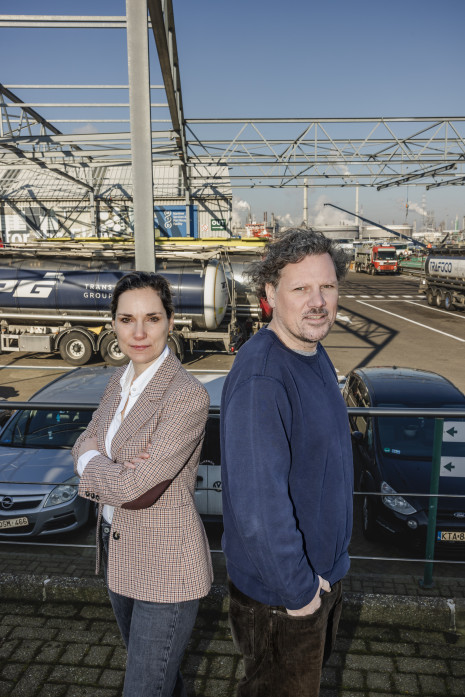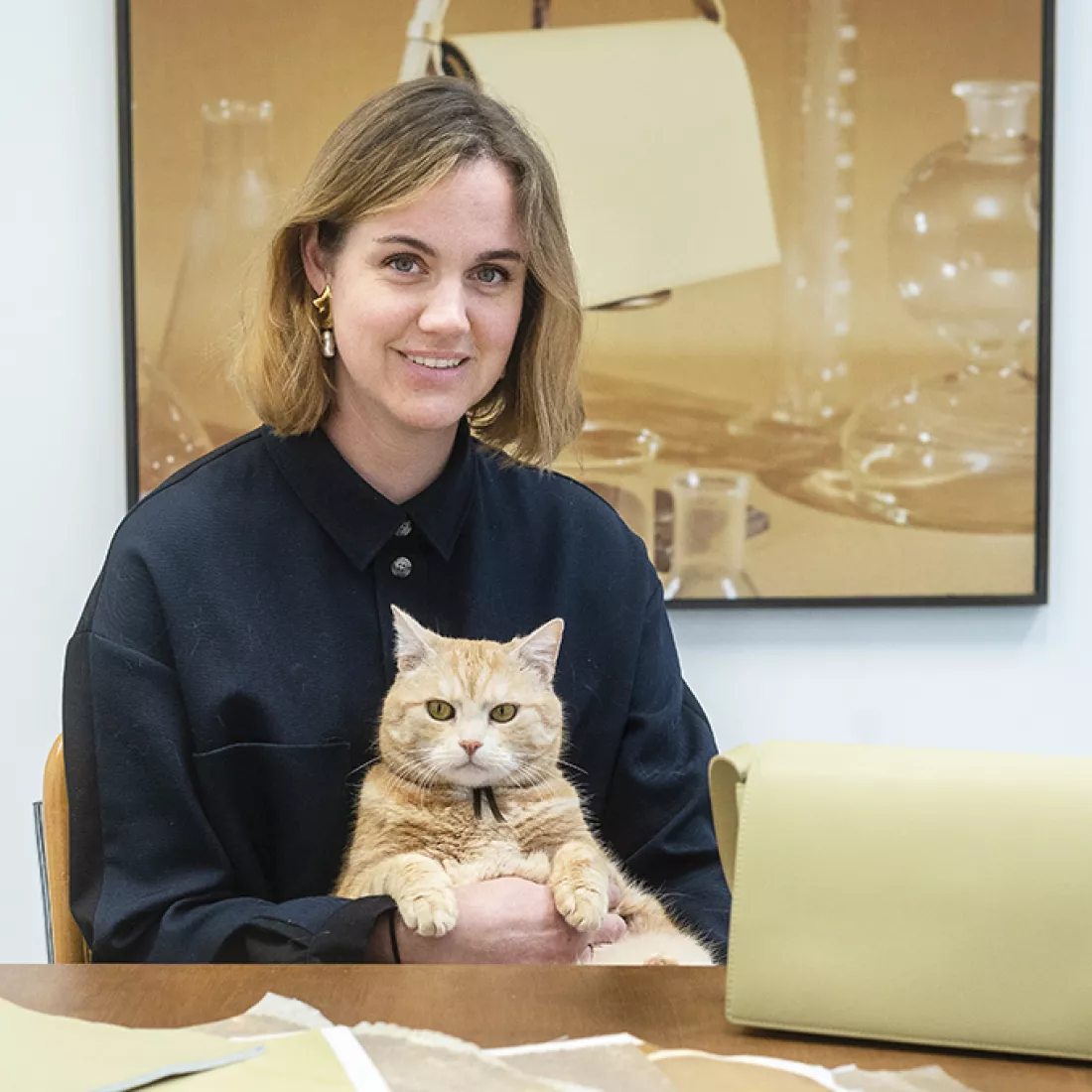LIES MERTENS
As a young player, we have the advantage of being able to move quickly. We can rapidly turn our knowledge and experience into an innovative end product. Mycelium is a by-product of a by-product. It is a fully circular material that meets today's environmental and climate challenges.
© Lies Mertens

- Home
- Meet the Innovators
- LIES MERTENS
Conciously designed durable handbag made of mycelium material
Lies Mertens is a handbag label that focuses on transparency and innovation as well as sustainability and simplicity. Always on the lookout for new and sustainable materials, Lies Mertens has teamed up with MycaNova, a subsidiary of the pharmaceutical company Citribel, to explore the possibility of using fungi as a sustainable substitute for animal leather.
Lies Mertens and MycaNova are working on a groundbreaking project in Belgium. Together they are researching the properties of mycelium such as strength, stretchability and warmth of the material. As a young player, Lies Mertens shifted gears quickly and now is the first European fashion brand that launched a bag in this new material.
Mycelium as circular raw material
Lies Mertens kept looking for an alternative to leather and came into contact with Citribel, a major player in the chemical industry that produces citric acid for the pharmaceutical and food industries. To produce citric acid, the Belgian company uses sugar molasses, a natural by-product of the sugar refineries in Tienen, which is derived from sugar beet or sugar cane.
To convert the molasses into citric acid, Citribel uses surface fermentation, a labour-intensive process in which the molasses is exposed to air in large, flat aluminium trays. During fermentation, bacteria, fungi or yeasts convert substances in a product, changing its acidity, taste, smell or appearance. Citribel uses the fungus 'Aspergillus niger' for this purpose. It grows long fibres and proteins in the first few days and then produces citric acid. The by-product is a dense network of fungal threads called mycelium.
Mycelium has long been undervalued and processed as feed for ruminants. Until Citribel, which grows about six football fields of this spongy substance every day, began to wonder: couldn't we do more and better with this voluminous by-product?



